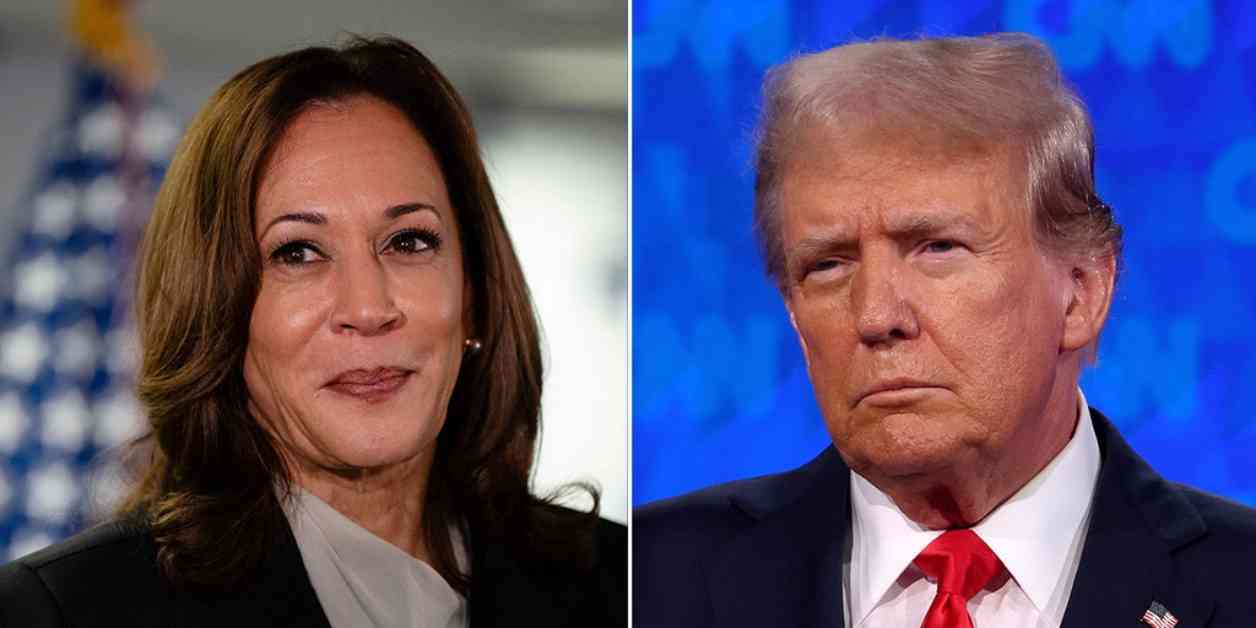Former President Donald Trump has accused Vice President Kamala Harris of promoting “Soviet style” economic policies after her announcement of plans to introduce price controls on groceries. The Harris campaign revealed its intention to institute a “federal ban on price gouging on food and groceries” in an effort to prevent “big corporations” from taking advantage of consumers. Trump took to Truth Social to express his concerns, stating that if Harris were to become President, things would become “100 times WORSE” in terms of cost. He warned that Harris’s plan would lead to the implementation of “Soviet Style Price Controls” and criticized her for potentially abolishing private health care and adopting California’s high tax policies nationwide.
The announcement of Harris’s price control proposal received widespread criticism from various commentators and economists who drew comparisons to failed communist economies around the world. The idea was likened to initiatives in countries like Venezuela, Argentina, and the Soviet Union that ultimately led to economic turmoil. Despite Harris’s assertion that the plan aimed to address “fair pricing in competitive markets” and combat “excessive prices unrelated to the costs of doing business,” experts questioned the feasibility and effectiveness of such measures.
Expert Criticism and Analysis
Economists and commentators, including a former Harvard economist who served in President Obama’s administration, expressed skepticism towards Harris’s plan. Jason Furman, the former National Economic Council chair under Obama, dismissed the proposal as lacking a basis in reality and warned of potential negative consequences. In a report published by The New York Times, Furman stated, “This is not sensible policy, and I think the biggest hope is that it ends up being a lot of rhetoric and no reality.”
Furthermore, Washington Post columnist Catherine Rampell criticized Vice President Harris’s proposal as a sweeping set of government-enforced price controls that would disrupt market dynamics. She highlighted the dangers of such policies, emphasizing that supply and demand would no longer determine prices or profit levels, but rather decisions made by distant bureaucrats in Washington. Rampell drew parallels between Harris’s plan and failed economic policies in countries like the Soviet Union and Venezuela, warning of potential shortages and black markets.
Reactions from the Public and Industry
As news of Harris’s price control proposal spread, reactions from the public and industry stakeholders varied. While some expressed support for measures to combat price gouging and ensure fair pricing, others raised concerns about the potential consequences of government intervention in market dynamics. Critics argued that imposing price controls could lead to unintended consequences such as shortages, black markets, and reduced competition.
The Harris-Walz campaign’s championing of a bill to combat alleged price gouging on groceries through price controls sparked debates about the role of government in regulating prices. Economists and media commentators highlighted the risks associated with such interventions, citing historical examples of failed price control policies in other countries. The proposed legislation raised questions about its impact on businesses, consumers, and overall market stability.
Implications for the Economy and Policy Making
The debate over Harris’s price control proposal has significant implications for the economy and future policy making. Critics argue that government-imposed price controls could distort market forces, hinder innovation, and ultimately harm consumers. They point to historical examples of failed price control policies in countries like Venezuela and the Soviet Union as cautionary tales against similar interventions.
Proponents of Harris’s plan, however, contend that price controls are necessary to protect consumers from exploitation by big corporations and ensure fair pricing. They argue that market forces alone may not always lead to optimal outcomes and that government intervention is warranted in specific cases to prevent price gouging. The ongoing discussion around price controls highlights the complexities of balancing market dynamics with consumer protection in a rapidly changing economic landscape.
In conclusion, Vice President Kamala Harris’s proposal to introduce price controls on groceries has sparked a heated debate among economists, commentators, and industry stakeholders. While some view the plan as a necessary step to address price gouging and ensure fair pricing, others warn of the potential negative consequences of government intervention in market dynamics. The implications of Harris’s price control proposal extend beyond the grocery sector, raising broader questions about the role of government in regulating prices and the impact on businesses and consumers. As the discussion continues, it remains to be seen how policymakers will navigate the complex terrain of economic policy in the face of competing interests and ideologies.




